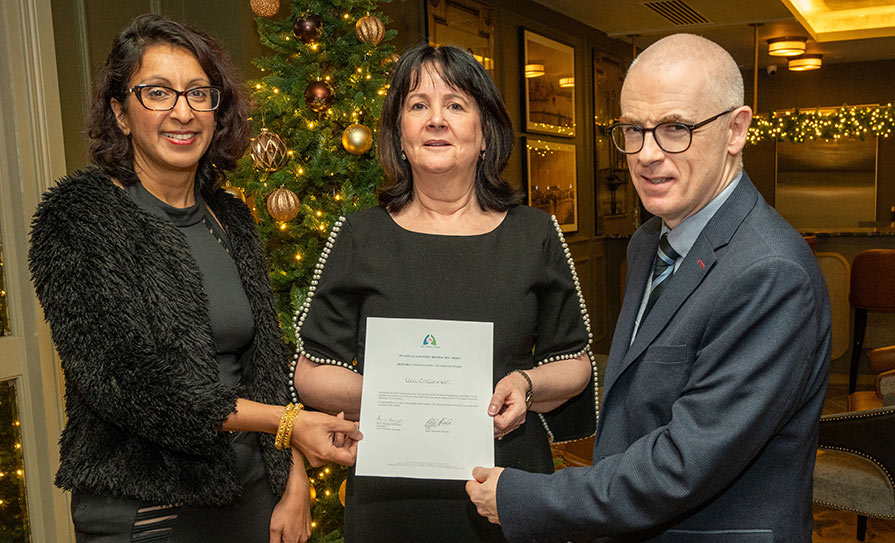<h3>Coming together on genome editing?</h3>
Asking a person, whether they are a medical professional or otherwise, how they feel about genetic therapies is like asking someone how they feel about cheese. Or sport. It’s too broad a question.
First, a little context. Ireland is not ready for gene therapy trials in terms of regulation or a clearly-defined strategy for genomics. One specialist clinician told me that there’s a grand total of eight genetic counsellors in Ireland, while we need approximately 46. There’s a total of six clinical geneticists; we need 40.
So we have a long way to go, but genetic therapies do seem to be writ large in the future of patient care, especially for rare diseases. But how does the public feel about this? Again, depending on where you’re coming from and the severity of a disease, you might be gung-ho. If you have no ‘dog in the fight’, you might be more cautious.
Dodgy segue alert: A study published last month showed success in treating dogs with Duchenne muscular dystrophy (some golden retrievers get the disease). Muscle function was restored after injections of microdystrophin, a shortened version of the dystrophin gene, which is lacking in those with the condition. But I digress (see <em>Nature Communications</em>).
Some survey results were released at the American Society of Human Genetics annual meeting in the US last month. Five-hundred geneticists from around the world participated and their responses were compared with a previous study to gauge the public’s opinion.
In short, and perhaps predictably, there was a higher acceptance of genome editing among the geneticists than among the public. Around 70 per cent of the geneticists were ‘strongly supportive’ of somatic gene editing to treat a physical disability but only 40 per cent were in favour of germline gene editing for the same disability. Perhaps surprisingly, 65 per cent of the public were in favour of either germline or somatic therapy.
This raises the question as to whether public knowledge is increasing when it comes to genetic therapies or whether, as posited above, the question is too broad and the public sees ‘gene therapy’ as a single concept without distinction. The particular wording of the question is unknown to me.
Then there is the ‘X factor’ of religious convictions, which may come into play when genetic therapies become more widely available in Ireland.
One way or the other, gene therapy is ‘in the mail’ and sooner or later there will be a need for information campaigns to inform the public on what all the fuss is about.
<div> <h3 class=”DORSALhead2MIstyles”>Bird-brains </h3> </div>
How good are you at multitasking? The old adage that ‘women are better than men’ at multitasking may be a moot point if the results of a study published a few weeks ago in <em>Current Biology</em> are anything to go by. In summary, it turns out that pigeons are better at it than we are.
Apparently, it all boils down to the brain’s mammalian cortex. Pigeons have instead a section of the brain called the pallium, which contains six times more cells per cubic centimetre than our own humble brains, meaning that their neurons are packed approximately 50 per cent closer to each other, allowing electrical impulses to be transferred at a much faster rate.
To put all this to the test, researchers at the Ruhr-Universitat Bochum in Germany pitted humans against pigeons in a button-pushing exercise based on patterns on a screen for humans, and colours on a screen for pigeons. When there was a 300 millisecond delay between the end of one task and the beginning of another, the birds outperformed humans. When there was no delay, the humans and pigeons performed equally well.
Author Dr Sara Letzner explains it best: “For a long time, scientists used to believe the mammalian cerebral cortex [birds don’t have one] to be the anatomical cause of cognitive ability. That [the results] means the structure of the mammalian cortex cannot be decisive for complex cognitive functions, such as multitasking.”
I’ll leave you to draw your own conclusions.
<div> <h3 class=”DORSALhead2MIstyles”>Lost in translation</h3> </div>
A couple of quick jokes to finish, kindly sent to me by a reader. All contributions are most welcome.
<p class=”listBULLETLISTTEXTMIstyles”>A nurse hears a man in his hospital bed mumble through his oxygen mask: “Nurse, are my testicles black?” Slightly-confused, the nurse nevertheless raises his gown and examines the patient’s testes carefully. “There’s nothing wrong with them,” she informs him. He takes off his mask and replies: “Thanks for that. But please listen carefully — are-my-test-results-back?”
A cardiac patient on the transplant list hears the good news that two donor hearts have become available. “One belonged to a social worker and the other belonged to a lawyer,” the surgeon informs the patient. Quick as a flash, the patient replies: “I’ll take the lawyer’s!” Curious about the instant comment, the surgeon enquires why. The patient responds: “Social workers are all bleeding hearts and the lawyer’s has probably never even been used.”












Leave a Reply
You must be logged in to post a comment.